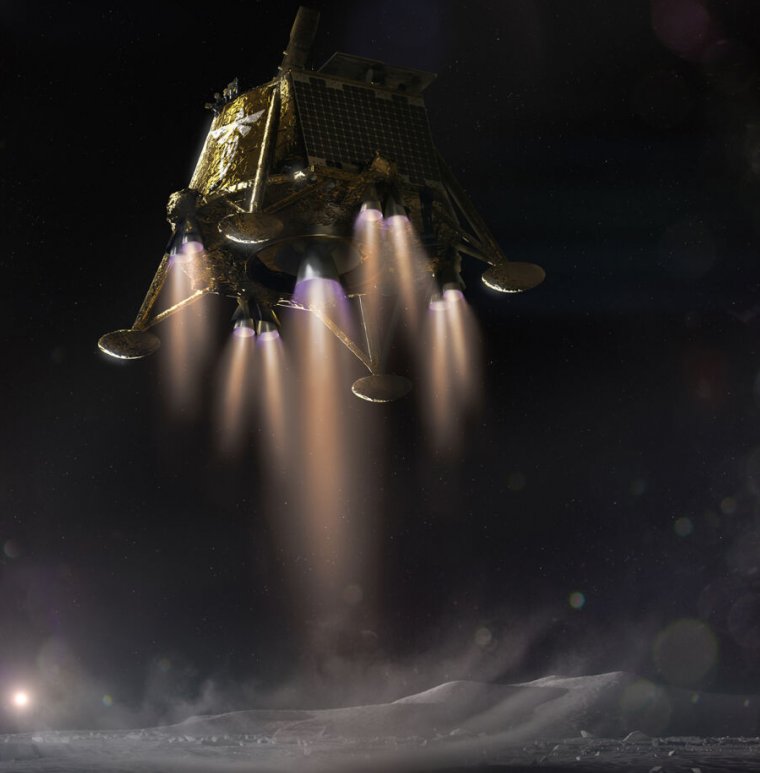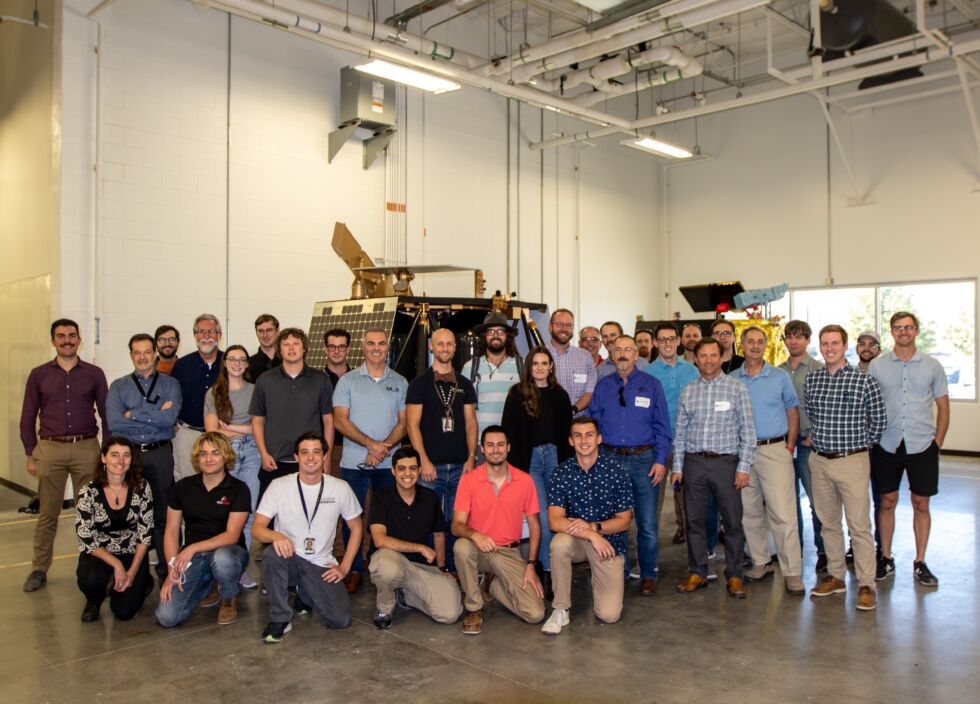
Although Firefly Aerospace is only a few weeks removed from its first-ever launch attempt, the Texas-based space company is already making good progress toward its first mission to land on the Moon.
Firefly said Monday that it has completed the “critical design review” phase of its program to develop a lunar lander. This means the company can now proceed to build and order components for the “Blue Ghost” spacecraft and begin its assembly. Firefly aims to launch the spacecraft as the primary payload on a Falcon 9 rocket in the fall of 2023.
NASA is sponsoring the mission as part of its Commercial Lunar Payload Services Program, through which it pays private companies to deliver scientific experiments to the Moon. NASA is paying $93.3 million for this Blue Ghost mission, which will carry 10 payloads down to the Mare Crisium lunar basin in September 2023.
“We got through the critical design review process in eight months, which is a very fast pace for sending something to the surface of the Moon,” William Coogan, Blue Ghost’s chief engineer, told Ars.
The lander is sized like a large person, about 2 meters tall, and capable of carrying 155 kg of payload to the Moon’s surface. From the time that NASA ordered the mission, Firefly will have had about 2.5 years to design and build the lander, Coogan said.
He is most excited about the spacecraft’s potential to stream high-definition video from the surface of the Moon at 10 megabits per second. One camera, at the top of the spacecraft, will be set to track to Earth as it moves over the Moon, and its eclipse as it sets over the horizon. Coogan said he is eager to share such a view of our home planet with the entire world.
To date, NASA has selected six missions as part of the innovative commercial lunar payload program. The first two of these, built separately by Astrobotic and Intuitive Machines, may launch in 2022. If Blue Ghost holds to its production schedule, it should be the third or fourth private US mission to land on the Moon.
Firefly started as a launch company and attempted its first Alpha rocket launch in early September. The rocket failed after one of its first-stage engines shut off only seconds after launch, but the company is already well on its way toward a second attempt, said CEO Tom Markusic. The company plans to deliver hardware for its second flight to the launch site at Vandenberg Space Force Base in December and may attempt a launch as early as January 2022.
The company’s rocket production process is strongly vertically integrated, so developing Blue Ghost has been a challenge in that it relies more heavily on external partners, Markusic said. For example, the spacecraft’s engines are being built by a Ukrainian company, Flight Control. And the supply chain issues that have struck other industries have hit the aerospace sector as well.

“I’d say the supply chain is my biggest concern, but it’s not a serious concern,” Markusic said about Blue Ghost’s scheduled launch and lunar landing. “The way we’ve mitigated that is we’ve picked good partners and we’ve watched them carefully. Overall I feel good.”
Although he began Firefly to launch rockets, Markusic said he has realized that to scale in the space industry, a company needs to do more than launch. SpaceX, for example, has diversified beyond launch with its Dragon spacecraft and Starlink satellite businesses.
So in addition to developing a larger “Beta” rocket and the Blue Ghost lander, Firefly is also working on an in-space utility vehicle. The privately held company completed a round of Series A funding earlier this year and aims to raise an additional $100 million or more by the first quarter of 2023 to fund its ongoing development activities.
https://arstechnica.com/?p=1807097

